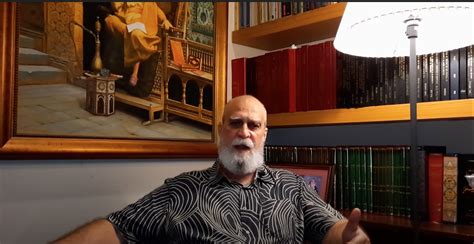Top 10 Quotes & Sayings by Syed Muhammad Naquib al-Attas
Explore popular quotes and sayings by a Malaysian author Syed Muhammad Naquib al-Attas.
Last updated on April 19, 2025.
Change, development and progress, according to the Islamic viewpoint, refer to the return to the genuine Islam enunciated and practised by the Holy Prophet (may God bless and give him Peace!) and his noble Companions and their Followers (blessing and peace be upon them all!) and the faith and practice of genuine Muslims after them; and they also refer to the self and mean its return to its original nature and religion (Islam).
It is like the thirsty traveller who at first sincerely sought the water of knowledge, but who later, having found it plain perhaps, proceeded to temper his cup with the salt of doubt so that his thirst now becomes insatiable though he drinks incessantly, and that in thus drinking the water that cannot slake his thirst, he has forgotten the original and true purpose for which the water was sought.



















